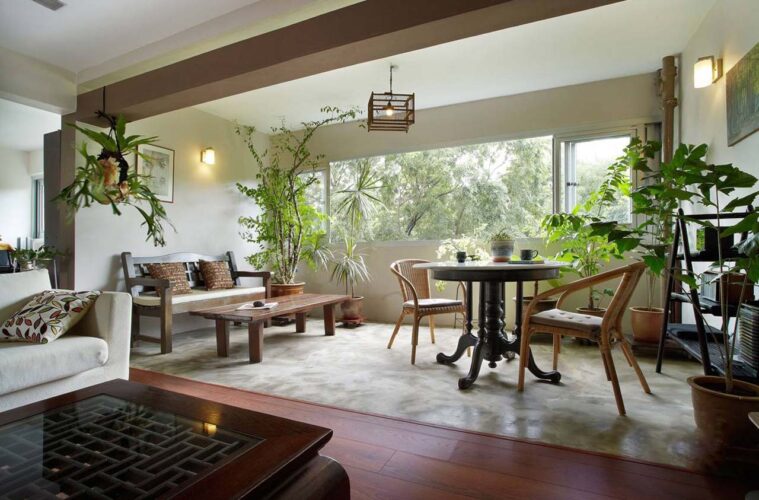In an era where environmental consciousness is on the rise, creating an eco-friendly home has become a top priority for many homeowners. But what is eco-friendly living, and how can you adopt it in your own space? In this comprehensive guide, we’ll explore seven effective strategies to craft an eco-friendly home that not only benefits the planet but also enhances your quality of life.
What is Eco-Friendly Living?
What is eco-friendly or eco-friendly living? Eco-friendly living known as sustainable living, is a lifestyle that focuses on minimizing our impact on the environment. It encompasses various practices and choices that prioritize the conservation of natural resources, reduction of waste, and reduction of carbon emissions. The goal is to create a harmonious coexistence between humans and the planet, ensuring a healthier and more sustainable future.
1. Energy-Efficient Appliances
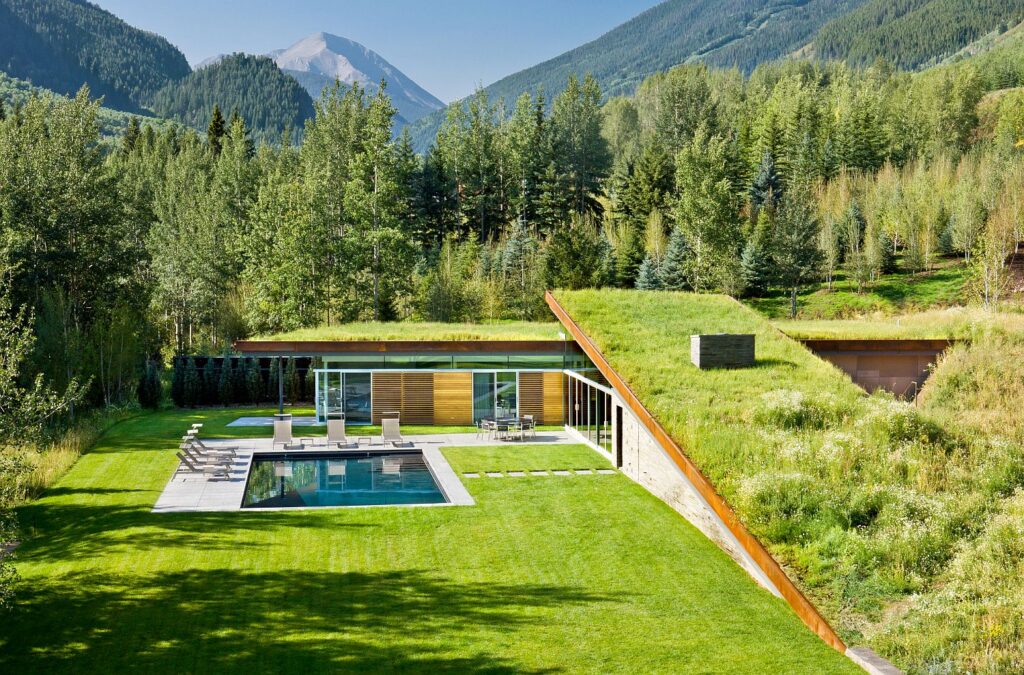
source: Decoist
Energy-efficient appliances are a cornerstone of eco-friendly living. These modern marvels are designed to consume significantly less electricity and water while delivering top-notch performance. With the ENERGY STAR certification, they signify their commitment to energy efficiency. By replacing outdated appliances with their energy-efficient counterparts, you not only reduce your utility bills but also lower your home’s carbon footprint. These appliances are a smart investment, benefiting both your wallet and the environment, as they play a crucial role in crafting an eco-friendly home.
2. Renewable Energy Sources
Renewable energy sources, such as solar panels and wind turbines, offer a sustainable solution to power our homes while reducing our dependence on fossil fuels. Solar panels harness the abundant energy of the sun, converting it into electricity for household use. Similarly, wind turbines capture wind energy and transform it into a clean power source. By integrating these renewable energy sources into our homes, we not only decrease our carbon footprint but also take a significant step towards energy independence. Embracing these technologies demonstrates a commitment to a greener and more sustainable future for our planet.
3. Efficient Water Usage
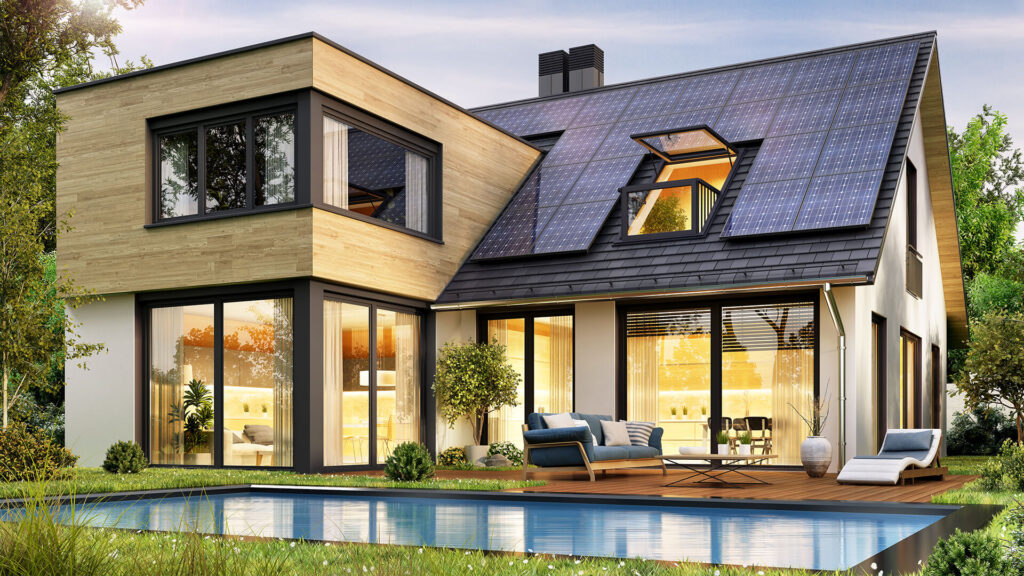
source: Pinterest
Efficient water usage is a vital component of eco-friendly living. By installing low-flow faucets and showerheads, we can significantly reduce water wastage without compromising on water pressure. Repairing leaks promptly is essential, as even minor drips can lead to substantial water waste over time. Furthermore, collecting rainwater for outdoor irrigation conserves treated water and helps maintain a healthy garden. Implementing these water-saving measures not only lowers water bills but also plays a crucial role in preserving this precious resource for future generations while crafting an eco-friendly home.
4. Natural Building Materials
Natural building materials, such as bamboo, reclaimed wood, and recycled glass, offer eco-conscious homeowners a sustainable choice for construction and renovation. These materials reduce the demand for virgin resources, minimizing the environmental impact of building projects. In addition to their ecological benefits, natural building materials often contribute to a healthier indoor environment by avoiding the use of toxic chemicals commonly found in conventional construction materials. Choosing these eco-friendly options allows us to craft homes that not only harmonize with nature but also promote a greener and more sustainable way of living.
5. Waste Reduction and Recycling
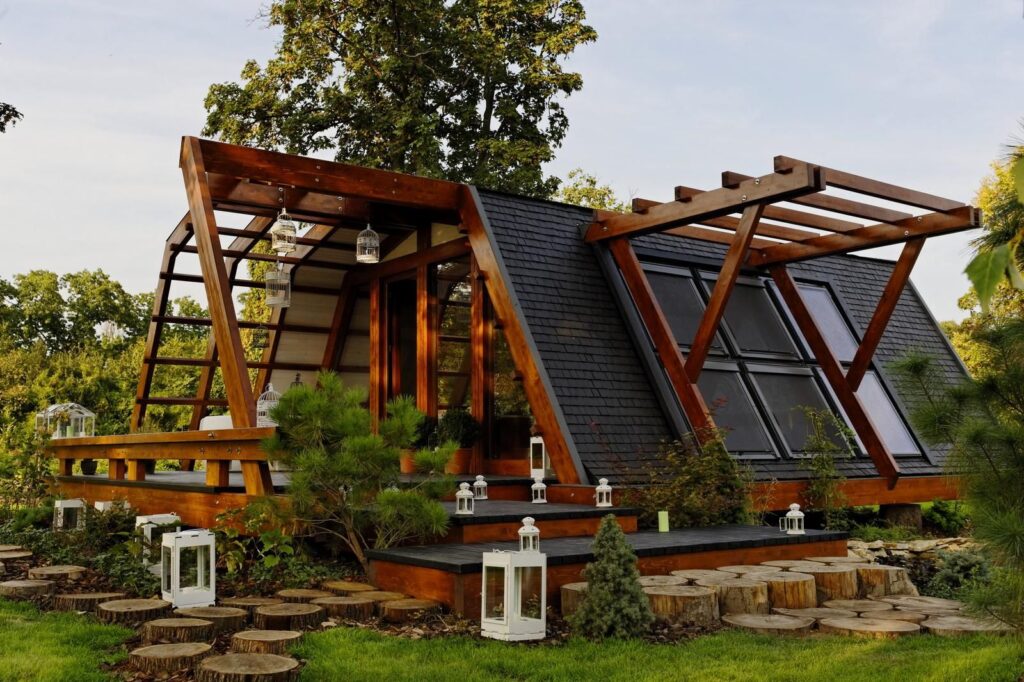
source: pinterest.es
Waste reduction and recycling are fundamental practices in eco-friendly living. Implementing a robust recycling program at home, segregating recyclables from non-recyclables, is a simple yet effective step towards sustainability. Reducing single-use plastics by favouring reusable alternatives, like bags, containers, and water bottles, significantly reduces plastic waste. Composting organic waste further diverts it from landfills and enriches garden soil. These waste reduction and recycling efforts not only decrease environmental harm but also promote responsible consumption, turning our homes into eco-conscious havens. Embracing these practices is a testament to our commitment to a greener planet and a cleaner future.
6. Energy-Efficient Lighting
Energy-efficient lighting is a key component of an eco-friendly home. Replacing traditional incandescent bulbs with energy-efficient options like LED or CFL not only reduces electricity consumption but also extends the lifespan of lighting fixtures. These bulbs consume significantly less energy, helping lower utility bills, and they emit less heat, which can reduce cooling costs in warmer months. Implementing motion sensors and timers ensures that lights are only used when needed, further conserving electricity. Energy-efficient lighting is a small change that can make a big impact in crafting an eco-conscious home while saving both energy and money.
7. Indoor Air Quality
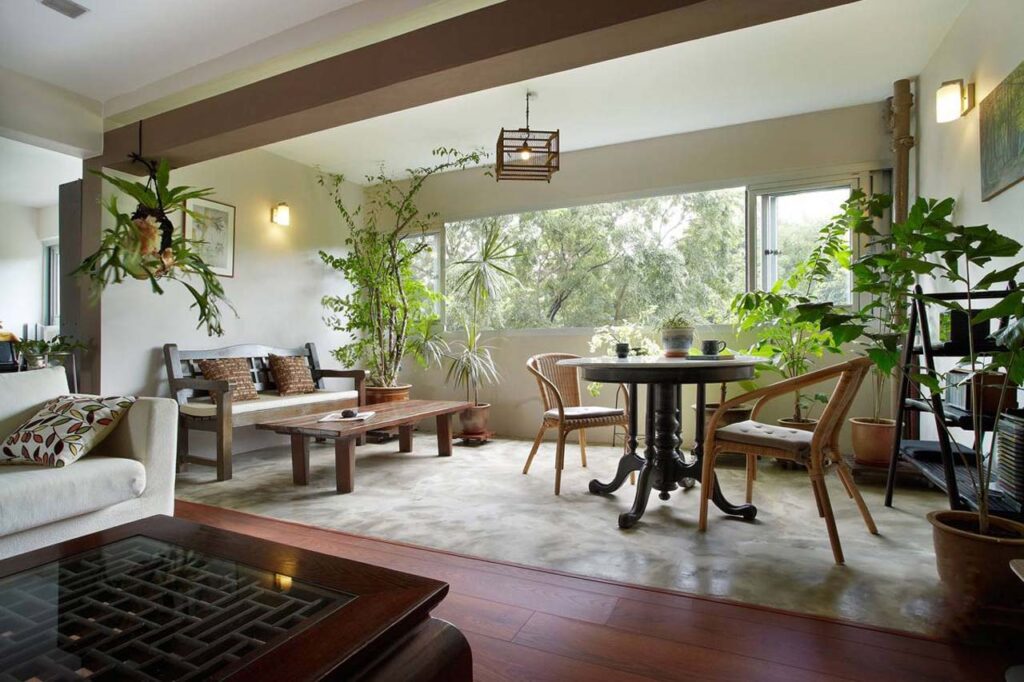
source: mydecorative.com
Indoor air quality is a critical aspect of an eco-friendly home. Choosing paints, finishes, and furnishings with low volatile organic compound (VOC) levels minimize indoor air pollution, creating a healthier living environment. Incorporating indoor plants, such as snake plants and peace lilies, not only adds aesthetic appeal but also naturally purifies the air by absorbing pollutants. Proper ventilation and air filtration systems further enhance indoor air quality, ensuring that the air you breathe is clean and safe. Prioritizing indoor air quality contributes to a more comfortable and eco-conscious living space, promoting well-being and environmental responsibility.
In conclusion, eco-friendly living is not just a trend; it’s a responsible and sustainable way of life that benefits both the environment and the well-being of your family. By understanding what eco-friendly living entails and implementing these seven effective strategies in your home, you can contribute to a greener planet while enjoying the many advantages of an eco-conscious lifestyle. Creating an eco-friendly home is a journey that not only reduces your carbon footprint but also fosters a sense of responsibility and stewardship for our beautiful planet.

